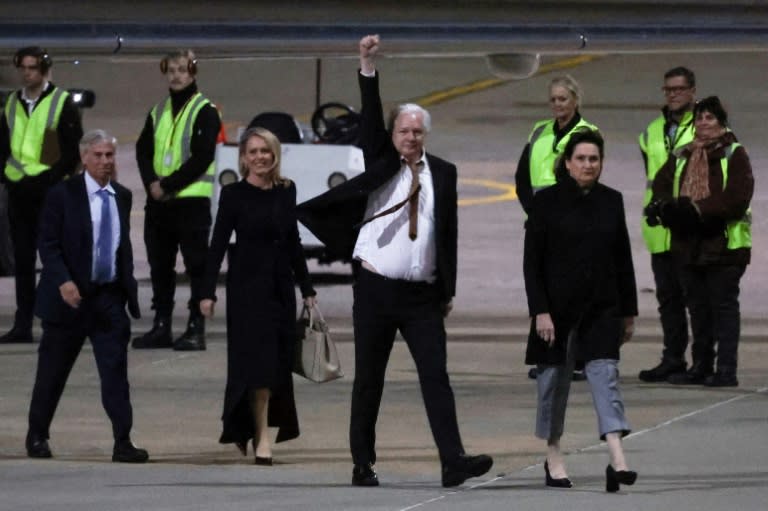Julian Assange 'marvelling' at freedom in Australia

WikiLeaks founder Julian Assange is "marvelling at the horizon" as he tastes freedom in Australia after a five-year stretch in a London high-security prison, his wife said Thursday.
The 52-year-old landed in Canberra the night before, hours after pleading guilty in a US Pacific island court to a single count of revealing military secrets.
Under a plea deal, he was sentenced to time already served and allowed to walk free, ending a 14-year legal struggle with the US Department of Justice.
"He's overjoyed to be back home. He's just marvelling at the horizon," Stella Assange told Australia's public broadcaster ABC.
When told of his release, the couple's two children were "jumping on the sofa and just ecstatic, and they want to show Julian the seals," she said.
Assange spent more than five years in London's Belmarsh prison fighting extradition to the United States on charges under the 1917 Espionage Act.
He had already lived for seven years in Ecuador's London embassy to escape extradition to Sweden over sexual assault charges, which were eventually dropped.
The couple have not had time to discuss how their lives will play out since his release, said Stella, who met Assange while he was still in the Ecuadorian embassy and married him in the London prison.
"That's why we have asked for privacy and space and time to figure things out," she said.
"I packed the bags and got on a plane and got here to receive Julian. And what happens next? Well, hopefully, rest, recovery and a period of calm."
- Journalism 'on trial' -
Assange's lawyer Jen Robinson said his plea deal would not set a legal precedent because it was not a judicial decision.
But she said the US prosecution itself was "chilling".
Assange was jailed because of a US extradition request for publishing classified but "important" information that revealed evidence of war crimes and human rights abuses, she said.
"That is journalism," Robinson argued.
"Journalists around the world should be under no illusions that this is the prosecutorial policy of the United States government," she said.
"And while we have managed to secure Julian's freedom, I think it is true to say that journalism still remains on trial."
djw/cwl

 Yahoo News
Yahoo News 
